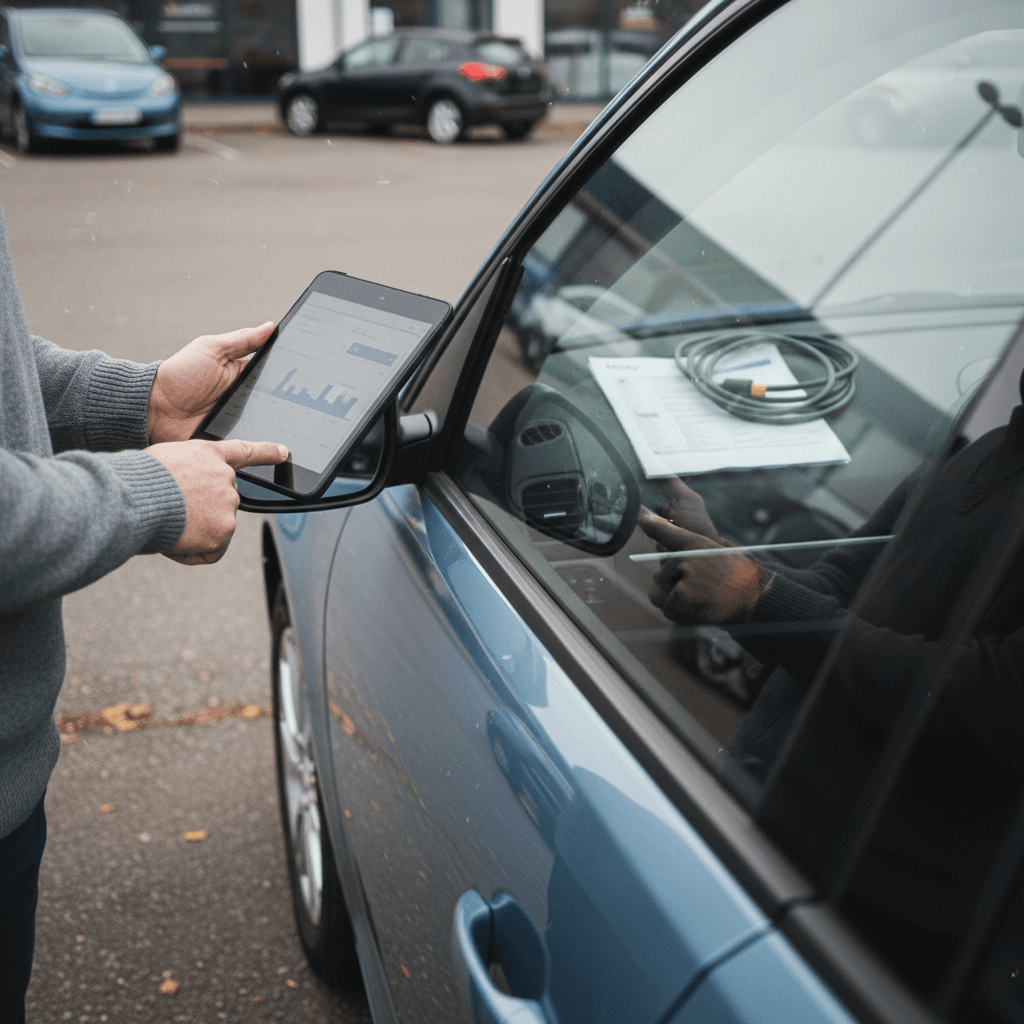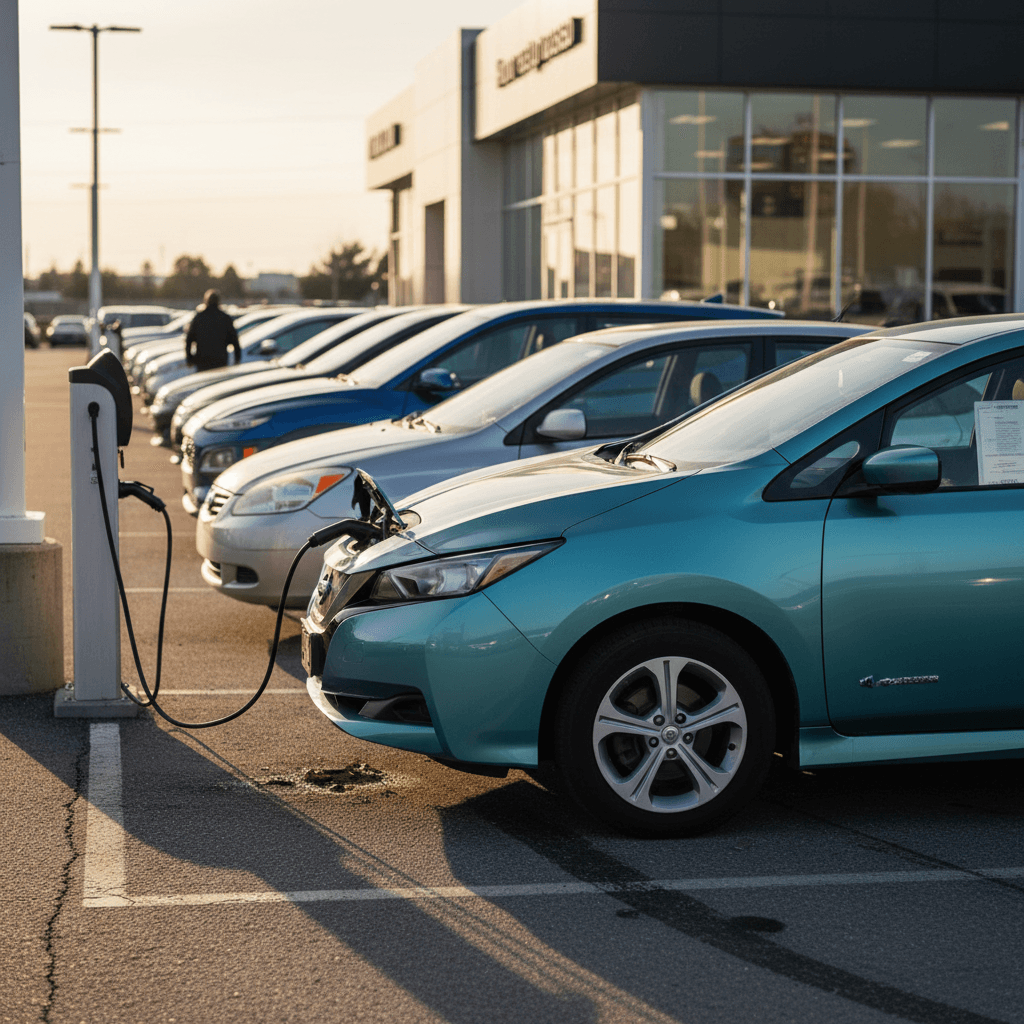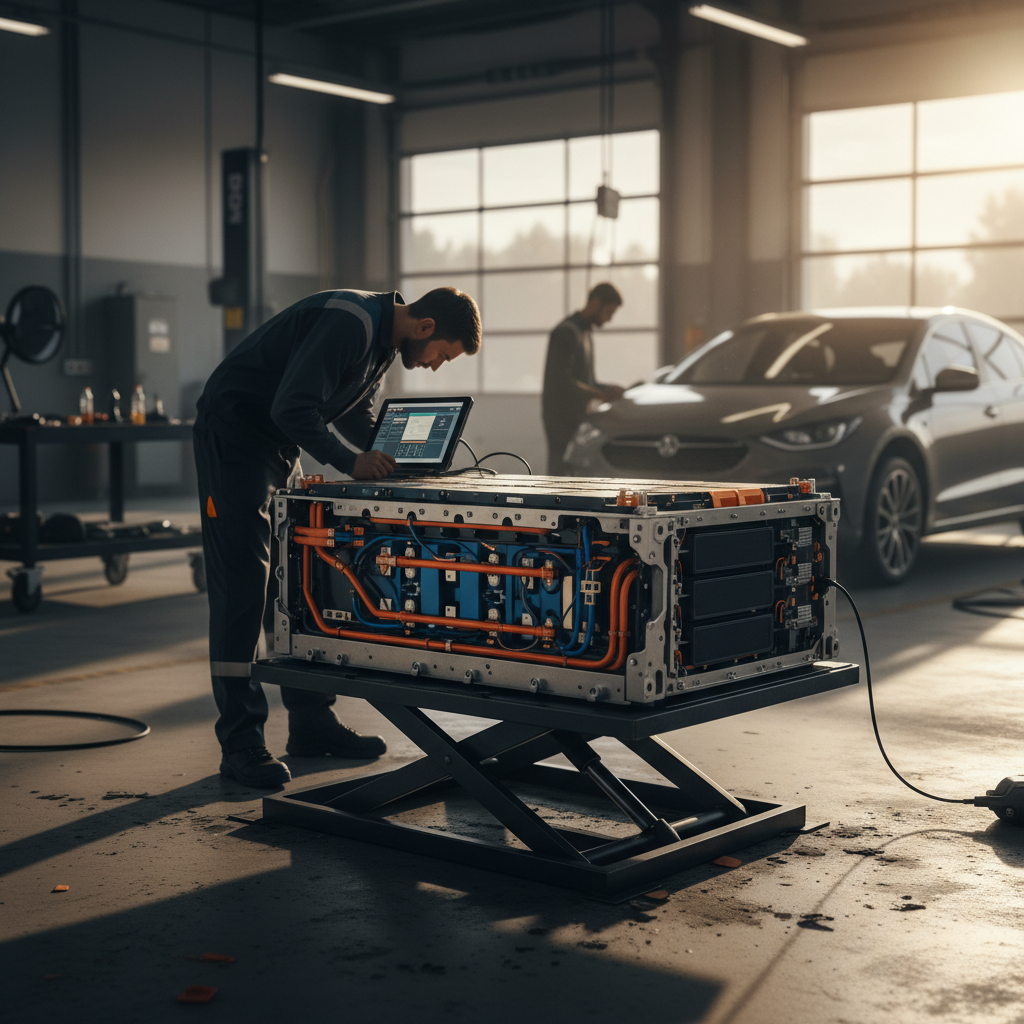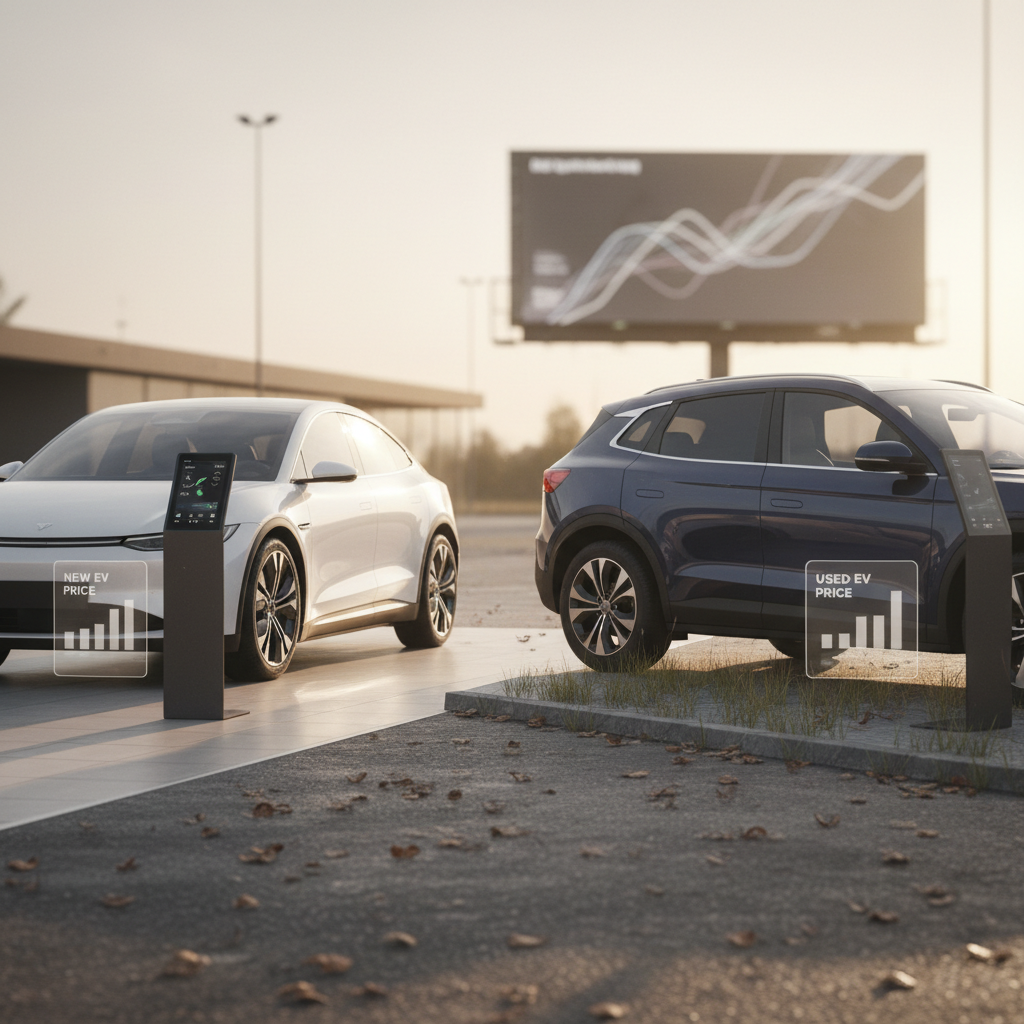If you’re shopping for the best vehicles under $20K in 2025, you’re in a tricky but promising part of the market. New-car prices are still high, but used-car and especially used EV prices have finally cooled, opening up real choices across gas, hybrid, and electric, if you know where to look and what trade-offs you’re making.
Good news for budget buyers
Why $20,000 Is a Sweet Spot in 2025
Where $20K Fits in Today’s Market
At around $20,000, you’re below the average used-vehicle price but still high enough to avoid the truly bottom-of-the-barrel inventory. That means you can aim for:
- New basic sedans from mainstream brands.
- 3–6-year-old used gas cars from Honda, Toyota, Mazda, Hyundai, and Kia.
- Compact SUVs and a few hybrids if you shop carefully.
- Early used EVs like the Chevy Bolt, Nissan Leaf, or older Tesla Model 3 trims depending on miles and condition.
Quick Picks: Best Vehicles Under $20K by Category
Best Vehicles Under $20K: Editor’s Picks
Specific model years and trims may vary by region and mileage, but these are consistently strong bets in 2025.
Best new car under $20K
2025 Nissan Versa (new) – One of the few genuinely new cars still starting under $20K. Simple, efficient, and packed with basic safety tech.
Best used compact sedan
2021–2023 Toyota Corolla – Legendary reliability, low running costs, and widely available under $20K with reasonable miles.
Best fun-to-drive small car
2019–2021 Mazda3 – Upscale interior, great steering feel, and still affordable if you prioritize driving enjoyment.
Best used EV deal
2017–2020 Chevrolet Bolt EV – Excellent range for the money; often found well under $20K, especially after price drops and recalls.
Best small SUV
2017–2019 Honda CR‑V or 2018–2020 Toyota RAV4 – Practical, efficient, and among the best long‑term bets in the compact SUV class.
Best hybrid under $20K
2018 Toyota RAV4 Hybrid or 2021 Toyota Corolla Hybrid – Harder to find, but stellar fuel economy and lower ownership costs if you do.
How to use this list
Best New Cars Under $20K
The under‑$20K new‑car club in 2025 is tiny. If you want a brand‑new vehicle at this price, you’re mostly looking at small gasoline sedans with modest power and strong fuel economy. You trade features and space for warranty coverage and predictable ownership.
New Vehicles You Can Still Buy Under $20K
MSRPs are approximate and can vary with destination fees and local incentives.
| Model | Type | Approx. Starting MSRP | Highway MPG | Why It’s a Good Buy |
|---|---|---|---|---|
| 2025 Nissan Versa | Subcompact sedan | $17,500 | Up to ~40 | One of the cheapest new cars left; basic but efficient with modern safety tech. |
| 2025 Kia Rio | Subcompact sedan | $18,300 | Up to ~41 | Strong warranty, good fuel economy, and easy to park, great for first‑time buyers. |
| 2025 Mitsubishi Mirage (where available) | Subcompact hatch | ~$17,000 | High 30s | Very basic and slow, but ultra‑cheap to buy and run if you only care about cost. |
In many cases, lightly used versions of these cars can be even better value than buying new.
Watch dealer add-ons
Best Used Gas Cars Under $20K
For most shoppers, the sweet spot under $20K is a 3–7‑year‑old compact or midsize sedan or hatchback from brands with strong reliability records. These models are abundant, easy to service, and cheap to insure.
- Honda Civic (2022 or earlier, used) – A mix of efficiency and fun, with many trims under $20K depending on miles and options.
- Toyota Corolla (2021–2023) – Conservative but bulletproof; offers excellent value as a commuter or first car.
- Toyota Camry (2018–2020) – A step up in space and comfort; even base trims get strong reliability and decent power.
- Mazda3 (2019–2021) – For people who actually enjoy driving; feels more expensive than it is inside.
- Hyundai Elantra (2021–2023) – Aggressive styling, long warranty (if it transfers), and lots of features for the money.
Pros of used gas cars
- Extremely wide selection at or under $20K.
- Easy to service anywhere; lots of independent shops.
- Lower purchase price means smaller loan and insurance bill.
- Well‑understood reliability patterns and ownership costs.
Cons to keep in mind
- Fuel and maintenance costs are higher than hybrids or EVs.
- Older safety tech compared with brand‑new cars.
- Previous owners’ maintenance (or lack of it) matters a lot.
- Not eligible for EV‑specific perks like HOV access in some states.

Best Hybrids and SUVs Under $20K
If you want SUV practicality or hybrid fuel economy under $20K, you’ll need persistence and flexibility. Inventory can be thin, especially on the hybrid side, but the right example can deliver excellent long‑term value.
Strong Hybrid and SUV Candidates Under $20K
You may need to shop nationwide or expand your model years to find clean examples in budget.
2017–2019 Honda CR‑V
One of the most trusted compact SUVs. Spacious cabin, great cargo room, and strong reliability make it an easy recommendation for families.
2018–2020 Toyota RAV4
Standard RAV4 models (gas) are solid, and the RAV4 Hybrid (2018) adds excellent efficiency if you can find one under $20K.
2018 Toyota RAV4 Hybrid
Often recommended as a top hybrid SUV under $20K. Expect strong fuel economy and Toyota’s hybrid track record.
2021 Toyota Corolla Hybrid
More sedan than SUV, but worth highlighting: hybrid efficiency, Toyota Safety Sense, and potential availability under $20K depending on mileage.
2021 Kia Sportage
Frequently cited as one of the best small SUVs under $20K. Comfortable ride and a long warranty if it’s still in effect.
Other compact crossovers
Look at Subaru Forester, Mazda CX‑5, and Hyundai Tucson in the 2017–2020 range if you prioritize space and all‑weather capability.
Hybrid vs gas SUV under $20K
Best Used EVs Under $20K
Used EVs are where the market has shifted the most. Price drops and generous tax credits mean that in some cases you can get a surprisingly modern EV for under $20K, especially if you’re flexible about brand and range. But you need to understand battery health, charging, and incentives before you jump in.
Used EVs Commonly Found Under $20K
Exact pricing varies with mileage, condition, and local demand, but these models regularly appear at or below $20K in 2025 listings.
| Model & Years | Est. Price Range (2025, used) | EPA Range when new | Key Strengths | Key Watch‑outs |
|---|---|---|---|---|
| 2017–2020 Chevrolet Bolt EV | ~$12,000–$18,000 | ~238 miles (early years) | Excellent range per dollar; compact size; DC fast‑charging capable. | Check recall status and battery replacement history; some early packs had issues. |
| 2016–2020 Nissan Leaf (40 kWh) | Often $8,000–$16,000 | 150 miles (40 kWh) | Very affordable entry into EV ownership; good for short commutes. | Air‑cooled battery can degrade in hot climates; range may be much lower than original spec. |
| 2019–2021 Hyundai Kona Electric | ~$16,000–$20,000+ | 258 miles | Long range, efficient, and often good value after recent price drops. | Verify software updates and any recall work; limited DC fast‑charging speed vs newer EVs. |
| 2019–2021 Kia Niro EV | ~$16,000–$20,000+ | 239 miles | Practical crossover shape with strong range; prices have fallen sharply. | Availability can be region‑specific; confirm warranty details on high‑mileage examples. |
| 2017–2019 Tesla Model 3 (Standard Range) | High‑mile units approaching $20K | ~220–240 miles | Access to Tesla Supercharger network (increasingly open to non‑Tesla EVs as well); strong charging infrastructure. | At $20K you’re usually looking at higher‑mileage cars; inspect for wear, prior repairs, and software feature set. |
Always verify real‑world range and battery condition before buying any used EV.
Battery health is everything
How Recharged Helps With Used EVs Under $20K
If you’re specifically hunting for a used EV under $20K, this is where a specialist marketplace helps. Every EV sold through Recharged comes with a Recharged Score Report that includes verified battery health data, fair‑market pricing, and a clear view of how the car was used. Our EV‑specialist team can also walk you through charging options, home setup, and financing so you’re not guessing whether that “cheap” EV will still meet your needs five years from now.
How to Choose the Right Vehicle Under $20K
If you prioritize lowest upfront cost
- Look at older but reliable sedans like Corolla, Civic, or Elantra.
- Aim for clean Carfax/vehicle history, even if miles are higher.
- Don’t chase the fanciest trim, mechanical condition > leather seats.
If you prioritize lowest total cost
- Consider a used EV or hybrid plus home charging.
- Factor in fuel savings, lower maintenance, and potential tax credits.
- Run a 5‑year cost comparison, not just a monthly payment estimate.
Match the Vehicle Type to Your Life
Instead of asking what the “best car” is, ask what’s best for your specific daily reality.
Urban commuter
Best bets: Used Civic, Corolla, or a shorter‑range EV like a Leaf.
Why: Easy to park, cheap to run, and you don’t need a big SUV to sit in traffic.
High‑mileage highway driver
Best bets: Camry, Accord, Mazda3, or a long‑range Bolt/Kona EV.
Why: Comfort, efficiency, and longevity matter more than fancy features.
Family hauler
Best bets: CR‑V, RAV4, Sportage, or other compact SUVs with proven reliability.
Why: Cargo space, crash safety, and rear‑seat comfort trump 0–60 times.
Don’t forget insurance and taxes
Financing and Total Cost of Ownership
Under $20K, the financing details can matter almost as much as the vehicle choice. A slightly cheaper car with a higher interest rate can end up costing more over the life of the loan than a slightly more expensive car with better terms.
How $20K Plays Out at Different APRs
Approximate monthly payments for a $18,000 financed amount (assuming $2,000 down on a $20K vehicle) over 60 months.
| APR | Estimated Monthly Payment | Total Interest Paid | What It Means |
|---|---|---|---|
| 4% | ~$331 | ~$1,860 | Strong credit and competitive loan offers keep total cost low. |
| 8% | ~$365 | ~$4,900 | Common for average credit; significantly more interest over the term. |
| 15% | ~$428 | ~$7,680 | Subprime territory, can erase much of the benefit of buying a cheaper car. |
These are rough numbers, but they show why APR shopping matters.
Use pre‑qualification to your advantage
Checklist: Buying Any Vehicle Under $20K
Essential Steps Before You Sign Anything
1. Define your real needs
Write down how many miles you drive per day, how often you carry passengers or cargo, and whether you can charge at home. This will narrow gas vs hybrid vs EV quickly.
2. Set a total budget, not just a price cap
Include taxes, doc fees, registration, insurance changes, and any immediate maintenance or tires. A $19,500 car with $2,000 of needed work is not really a sub‑$20K purchase.
3. Pull vehicle history reports
Use Carfax or similar to check for accidents, title issues, odometer discrepancies, and maintenance history. Walk away from branded titles unless you know exactly what you’re doing.
4. Get an independent pre‑purchase inspection
For any used car, especially off a private sale, pay a trusted mechanic or EV specialist to inspect it. On an EV, insist on a detailed battery health check.
5. Test drive the way you actually drive
If your life is mostly highway, don’t just drive around the block. For EVs, pay attention to range estimates vs actual consumption on your typical routes.
6. Compare 5‑year costs
Use online calculators to compare fuel, insurance, and maintenance over five years for your top two or three candidates. The “cheapest” car up front isn’t always the cheapest to own.
7. Be willing to walk away
The strongest negotiating power you have under $20K is your willingness to say no. There will always be another Civic, another CR‑V, another Leaf.
FAQ: Best Vehicles Under $20K
Frequently Asked Questions About Vehicles Under $20K
The Bottom Line: Value First, Fuel Second
When you’re shopping for the best vehicles under $20K, it’s easy to get lost in brand reputations, internet Top 10 lists, or ideological debates over gas vs EV. The reality is simpler: the best vehicle is the one that reliably does the job you need it to do, at a total cost you can comfortably carry, for as long as you plan to own it.
For many buyers, that will still be a used gas sedan or compact SUV. For others, especially those with home charging and predictable commutes, a used EV under $20K can deliver lower running costs and a smoother drive. Whichever path you choose, slow down, inspect carefully, and focus on the boring fundamentals: history, condition, and total cost of ownership.
If you decide an EV belongs on your short list, a specialist marketplace like Recharged can remove a lot of the guesswork with verified battery health data, fair‑market pricing, financing options, and expert guidance from first click to delivery. That way, your $20K doesn’t just buy a car, it buys peace of mind for the years ahead.



